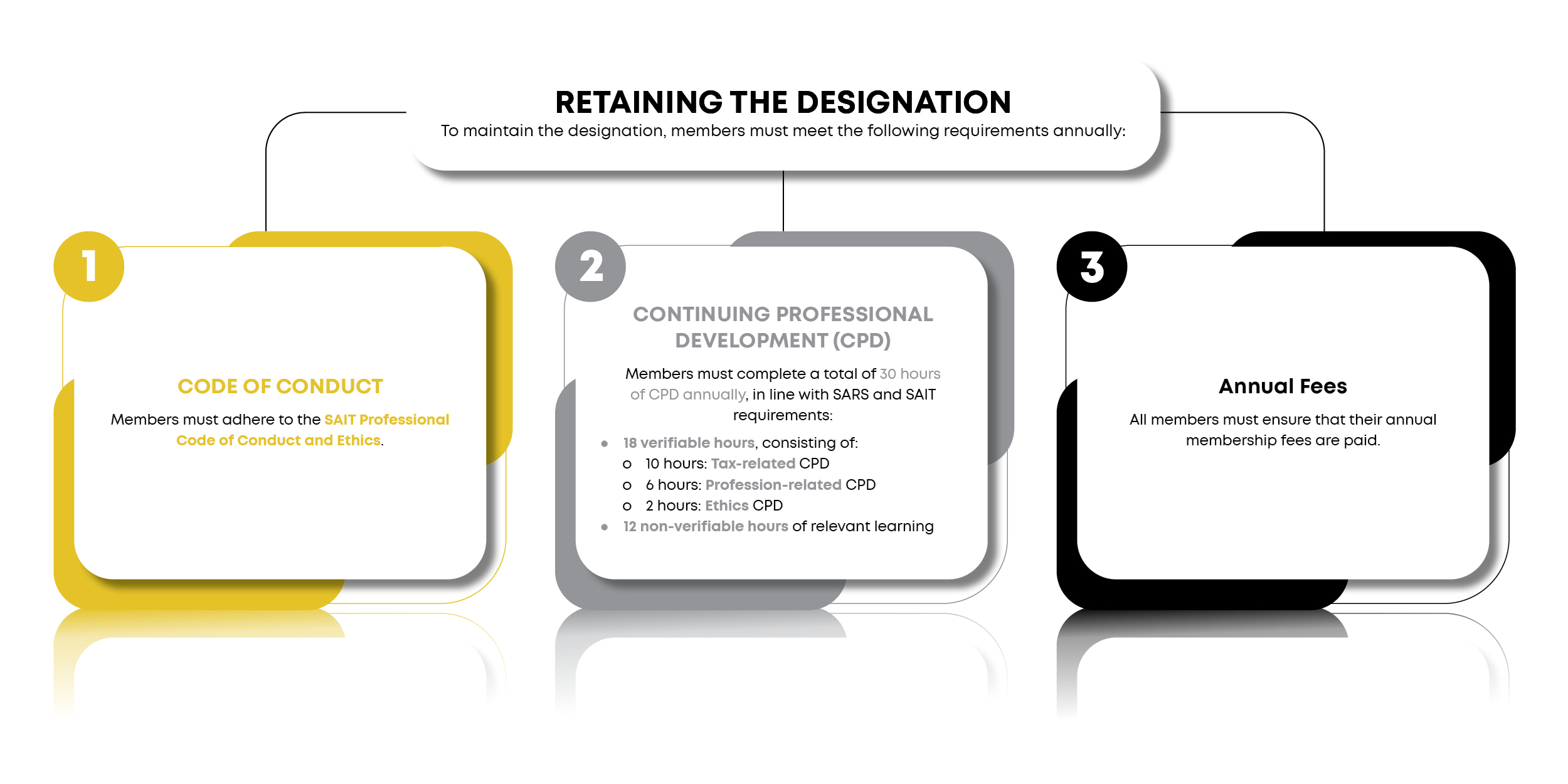Tax Adviser (TA(SA))
The Tax Adviser (TA(SA)) designation is aligned with the accounting, legal, and financial services professions, with a specialised focus on taxation. TAs begin with a tax subspecialisation, such as corporate tax, VAT, or international tax, and develop expertise in compliance, tax controversy, and advisory work. Some gain broader experience across multiple tax domains, handling compliance and disputes.

Awarding Criteria
To be awarded the Tax Adviser designation, applicants must meet the following criteria:
1. Academic Component
Applicants must have successfully completed an NQF Level 8 qualification that includes:
- At least two dedicated tax modules, or
- Multiple law modules in the case of a Law degree
Accepted qualifications include a Bachelor Honours Degree, Postgraduate Diploma, or an Occupational Qualification in tax, accounting, or law.
Recognised NQF Level 8 qualification titles include (but are not limited to):
- Tax Professional Occupational Qualification
- BCom Honours in Taxation
- Postgraduate Diploma in Taxation (PG Dip Taxation)
- Postgraduate Diploma in Tax Law (PG Dip Tax Law)
- Postgraduate Diploma in International Tax Law (PG Dip International Tax Law)
2. Experiential Learning / Experience Component
Applicants must have engaged in tax work as their sole or primary activity for a minimum of three (3) consecutive years.
This work experience must be completed as part of a structured and monitored programme, with oversight including:
- Completion and verification of a workplace logbook
- Participation in an officially recognised learnership or internship at an Approved Workplace Provider.
3. Competency Assessment
Applicants must submit the following documentation to SAIT:
- Proof of prior tax work experience, verified by SAIT through a structured workplace programme
- Proof of an NQF Level 8 qualification, as outlined above.
- Proof of a clear tax record
- Proof of a clear criminal record
All applicants must also successfully complete a two-day SAIT Board Assessment to demonstrate practical and theoretical competence.
4. Recognition of Prior Learning (RPL)
Applicants who have gained unstructured tax work experience may apply for the designation via the RPL route.
This includes:
- A minimum of five (5) years of unstructured, verifiable tax work
- Completion of an alternative logbook as a portfolio of evidence
- Fulfilment of the same two-day SAIT Board Assessment to demonstrate practical and theoretical competence.
5. SARS Readiness Programme
In accordance with the SARS requirements for Recognised Controlling Bodies (RCBs) and registered tax practitioners, all applicants must complete the SARS Readiness Programme as a mandatory requirement to register as a practitioner.

| Description | Fee Amount | Notes |
|---|---|---|
| Registration Fee | Not applicable | Not Applicable |
| Annual Membership Fee | R7 580.00 | Payable within 30 days of approval |
| Monthly Option | 1st, 15th, or 25th of each month | Debit order option available |
